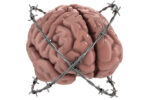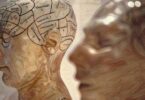Critical thinking is a skill that every human being must develop, since it gives us very specific qualities that help us solve problems in a better way, makes us more analytical, helps us know how to classify information into viable and non-viable, It makes us more curious, wanting to know and investigate more about topics of interest. Critical thinking does not consist of thinking negatively or with a predisposition to find faults or defects. It is a neutral and unbiased process or procedure to evaluate opinions and statements, both your own and those of other people.
Critical thinking is the process of doubting statements that are usually accepted as true in everyday life. Therefore, critical thinking does not aspire to reach an absolute truth, but rather to delve into practices and strategies that allow us to subject our convictions, and those of other people, to discussions. Critical thinking means not accepting the opinion of society, thus having individual ideas, knowing the arguments for and against and making one’s own decision regarding what is considered true or false, acceptable or unacceptable, desirable or undesirable. This thinking is also an objective thought, based on the commitment of one’s own ideas according to their environment as individual beliefs.
Having critical thinking does not mean opposing everyone or not agreeing with anyone, since the latter would not be critical thinking, but just a simple way of thinking that is limited to opposing what others think. Therefore, a critical thinker is capable, humble, tenacious, cautious, demanding. In addition to having a free and open posture, this is why a critical thinker begins to stand out in his environment and be recognized for his contributions, but everything is shaped over time with due experience.
Importance of critical thinking:
The critical sense helps us to discern between mediocre and brilliant arguments, to distinguish valuable information from dispensable information, to dismantle prejudices, to find well-founded conclusions, to generate alternatives, to improve communication and, ultimately, to be owners of our thinking.
Critical thinking implies that you must be “centered”, in the sense that it is not simply thinking, but thinking about something we want to understand and doing it in the best way possible, appreciating and evaluating the process so that “decisions” can be made. “.
Critical thinking strategies support the critical thinker to be self-directed and self-regulated.
Thinking critically implies mastering these standards. According to this, the final goal of all critical thinking is that it can be solid enough to stand on its own in any context, as long as it maintains its relationship with the phenomenon involved.
A perspective has developed that tends to inhibit the use and meaning of criticism because it is considered to contravene the order that society maintains.
Characteristics of critical thinking:
- Understand the relationship between ideas.
- Is able to weigh according to the importance of the arguments.
- Examine, construct and evaluate reasoning.
- Identifies lack of solidity and contradictions.
- Has a consistent and systematic approach to problems.
- Reflect on assumptions, beliefs and values.
We must take into account that the development of critical thinking about knowledge requires the following factors:
- Tendency towards critical thoughts.
- Access to critical content.
- Environments to practice critical knowledge (in its two types, knowledge in itself and knowledge as an instrument to contribute to the improvement of life)
Every time you want to evaluate the quality of reasoning about a problem, a topic or a situation; Thinking critically involves mastering these standards.
- Clarity: Way in which the proposal is expressed.
- Accuracy: Degree to which the structure used is consistent with the material to be undertaken.
- Precision: The construction or proposal must be adjusted to knowledge.
- Relevance or relevance: Environment in which the topic is discussed.
- Depth: When the level of analysis, investigation and explanation is sufficiently careful.
- Breadth: Extension of the approach.
- Logic: Argumentation according to the rules.
In order to be a good critical thinker, the following steps should be followed and developed:
- Adopt the attitude of a critical thinker.
- Recognize and avoid the main barriers or variations.
- Identify and characterize arguments.
- Evaluate sources of information.
- Evaluate the arguments.
FONT







